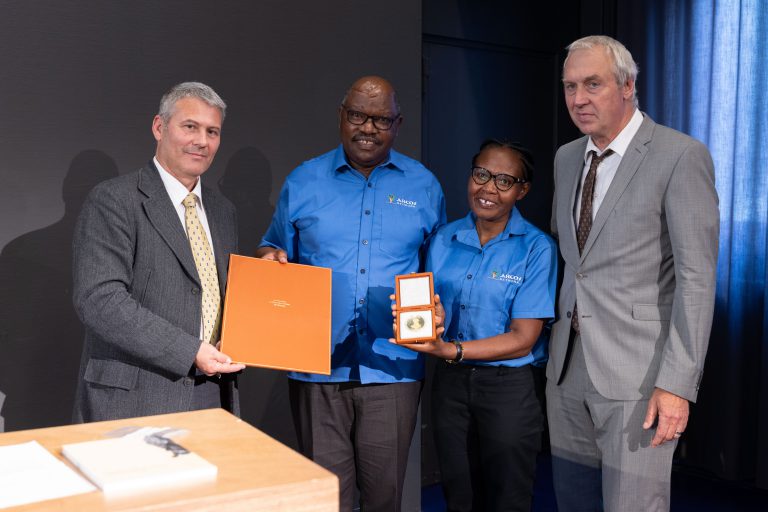Between 26th to 29th September 2021, the Government of Uganda hosted the Africa Climate Week(ACW). The ACW 2021 set out to accelerate collaboration and integrate climate action into global pandemic recovery. Albertine Rift Conservation Society (ARCOS) together with UNEP, GRID-Arendal, the East African Community (EAC) and partners organised a virtual-side event on Wednesday, 29th September 2021. The event was titled ‘Adaptation Solutions and Climate Action in Africa’s Mountains’. This event presented an opportunity for regional stakeholders to discuss the opportunities for sustainable mountain development and cooperation in East Africa.
The Government of Uganda hosted the Africa Climate Week (ACW) between 26th to 29th September 2021. ACW 2021 set out to accelerate collaboration and integrate climate action into global pandemic recovery. Albertine Rift Conservation Society (ARCOS) together with UNEP, GRID-Arendal, the East African Community (EAC) and partners organised a virtual-side event on Wednesday, 29th September 2021. The event was titled ‘Adaptation Solutions and Climate Action in Africa’s Mountains’. The event was organized under track three led by UNEP under the theme: Seizing transformation opportunities.
The event was moderated by Dr Apollinaire William, the Project Manager Agroforestry for Livelihoods at ARCOS. It brought together over 40 participants from the countries in the East African region including Burundi, Kenya, Rwanda, South Sudan, Tanzania and Uganda. The event contributes to the Adaptation at Altitude programme’s regional component for East Africa towards increasing knowledge on climate change and appropriate adaptation solutions in mountains that feeds into science-policy platforms for informed decision-making on national, regional and global policy processes.
The Executive Director of ARCOS, Dr Sam Kanyamibwa, thanked the Government of Uganda for hosting the Africa Climate Week and the partners for supporting sustainable mountain development in Africa. He indicated that ARCOS as the host of Africa Mountain Forum will continue to support efforts for promoting resilience in the mountain communities.
Ms Maureen Anino, the Assistant Commissioner at the Ministry of Water and Environment- Uganda, informed the participants that Uganda has made strides in supporting efforts to address climate change. She noted that the National Climate Change Act has already been assented to by the president. Maureen also indicated that Uganda developed the National Sustainable Mountain Development Strategy in 2016.
Eng. Ladislaus K. Leonidas, the Principal Environment and Natural Resources Officer at the EAC Secretariat, indicated that the EAC has established a policy framework that supports interventions to address climate change in the region. He encouraged the stakeholders to utilize the available frameworks and opportunities for regional dialogue such as the Mountain Forum to promote sustainable mountain development.
Essey Daniel, the Programme Management Officer at UNEP, informed the participants that the Adaptation at Altitude Programme is meant to increase the resilience and adaptive capacity of mountain communities and ecosystems to climate change. The program is supported by the Swiss Agency for Development and Cooperation.
Godfrey Mwesigye, the Regional Policy Officer at ARCOS presented the preliminary findings on the adaption solutions collected from the mountain areas in the six countries of the EAC. The collected adaption interventions in the mountain areas of the region range from agro-forestry, terracing, irrigation projects, integrated water resource management to alternative sources of livelihoods such as beekeeping, dairy farming, to trout fish farming at high altitudes.
Sarah Kigongo kaggwa the Community Engagement Officer on Water for Virunga Project- Uganda indicated that the human-wild conflicts in the communities near Mugahinga have reduced due to increased water supply in the communities. This is because the people no longer go to the protected areas in search for water.
Dr Doris Mutta, Senior Programmer Officer at African Forest Forum- Kenya, revealed that communities in Taita Hills in Kenya use beehive fences near their crops to deter elephants from invading them. The elephants fear the buzzing sound of African bees. She also indicated that households get many benefits, besides protecting their crops, including generating revenue from selling honey.
The side event presented an opportunity for regional stakeholders to discuss the opportunities for sustainable mountain development and cooperation in East Africa. The participants agreed that:
• The resources to support the mountain adaptation initiatives are limited given the cross-sectoral nature of Mountains development.
• There is a need to mobilize resources for long term adaptation to climate change in the East African mountains to promote integrated and sustainable interventions.
• There is a need to strengthen regional frameworks and platforms such as the Mountain Forum and promote regional cooperation and information exchange across all the EAC countries



